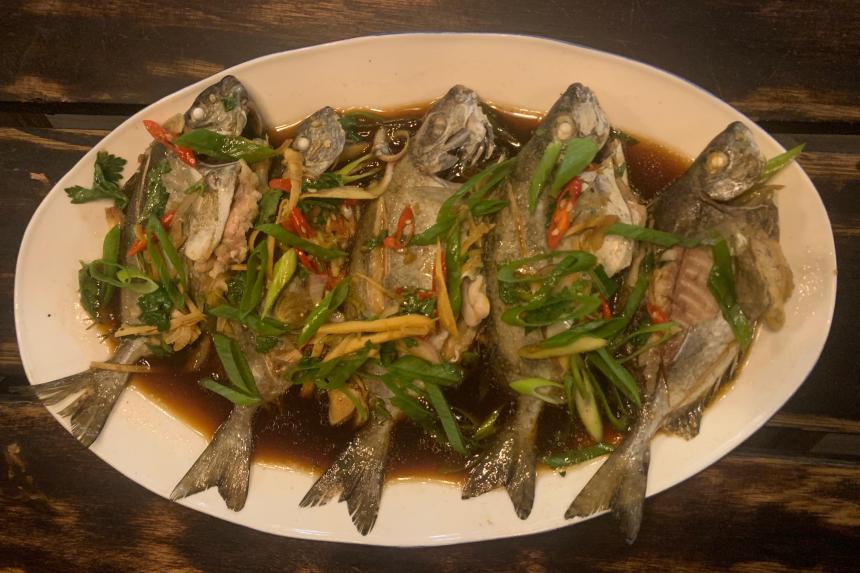SINGAPORE - Rabbitfish is a popular dish that tastes best during Chinese New Year (CNY), as its mating season coincides with the festive period and it is said to taste less fishy when filled with roe and milt, the male equivalent of caviar.
For some families here, the dish even has a convening power, bringing together extended family and triggering memories of childhood reunion dinners.
A group of 19 people from Singapore celebrated this Chinese New Year by feasting on the tropical fish. On Feb 10, Ms Jennifer Chang, 57, took her family to Kiki Beach Resort, a resort on Galang Island near Batam, Indonesia, to savour the delicacy and bring back memories of her late mother’s cooking.
Some of their friends also joined in the festivities. The youngest in the group was four years old and the oldest 62.
It was the first time Ms Chang had gathered with her siblings to have rabbitfish since their mother died seven years ago, she said. She hoped to reminisce about the times they spent having rabbitfish with their mother while enjoying the sea view and activities at the resort.
“She was the only one who prepared (the fish) for me, so I have missed this dish for many years,” said Ms Chang. “She would try to steam it for me throughout Chinese New Year. I would get many rounds of rabbitfish, as long as they sold it in the market.”

Her mother would steam rabbitfish Cantonese-style with garlic, red chilli, sesame oil and soya sauce for the family, she said, adding that it is her favourite way of enjoying the fish.
The dish was cooked only during Chinese New Year because rabbitfish are small and do not contain roe when it is not mating season.

“Even though my mum’s cooking was always the best, I’m grateful to Kiki Beach Resort for this special treat,” Ms Chang said.
The owner of the resort, Mr James Poh, 59, said mating season for rabbitfish lasts around a week during Chinese New Year – it started around Feb 5 and is set to end before Feb 15 in 2024.
During that time, the meat of the fish tastes firm and sweet, he said. As for its roe, he likened it to foie gras, which is creamy and smooth.
Kiki Beach Resort is situated in a prime spot for rabbitfish fishing, so fishermen built offshore fishing platforms made of wooden stilts, known as kelongs, near the resort.
The fishermen lay a big net across the stilts and lower it into the water to trap the fish.
“They know where the wind blows and when the current is coming in, so they will direct their nets in that direction, and the fish will swim in when they are coming to spawn,” said Mr Poh.
He said he initially thought the kelongs were an “eyesore”, as the wooden platforms were in front of the resort’s sea-facing villas, and wanted to remove them.
However, after he negotiated with the fishermen, they agreed to collaborate, with the resort buying the fishermen’s catch, including anchovies and rabbitfish, to serve to its guests.

Rabbitfish is commonly known as “bai du yu” (white-bellied fish). It is also known as “fa cai yu”, or “get-rich fish”, as it is believed to bring prosperity – especially true for the local fishermen who get a windfall during the festive season.
Compared with anchovies, which fetch about $20 to $30 for a day’s catch, rabbitfish can fetch up to $2,000, said Mr Syamsuden, 29, a local fisherman who goes by one name.
He added that rabbitfish season is an important source of income for fishermen in the area because it comes only once a year.

